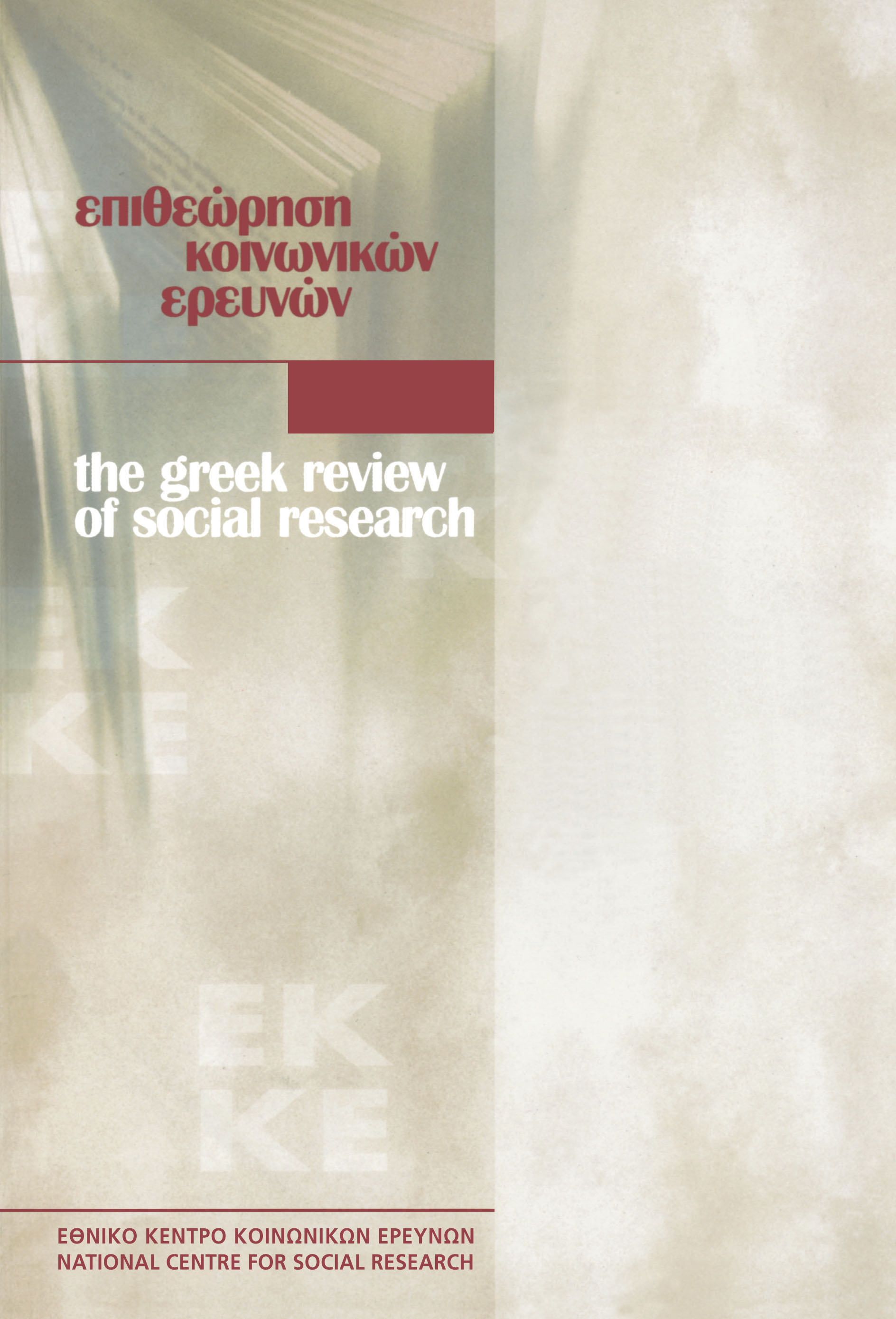Πολιτισμός και οικονομία: διαμορφώνοντας ένα πλαίσιο πολιτιστικής διαχείρισης της μουσικής παραγωγής στην οικονομική κρίση

Περίληψη
Το παρόν άρθρο είναι αποτέλεσμα μεταδιδακτορικής έρευνας που διενεργήθηκε σε συνεργασία με το Αριστοτέλειο Πανεπιστήμιο Θεσσαλονίκης την περίοδο 2016-2018. Παρουσιάζει ποιοτικά συμπεράσματα για τους κλάδους της δισκογραφίας και των συναυλιών την περίοδο της οικονομικής κρίσης καθώς και ποσοτικά ευρήματα διαδικτυακής έρευνας κοινού σχετικά με τη μουσική κατανάλωση. Με βάση αυτά, το άρθρο θεμελιώνει ως βασική του θέση ότι η διαμόρφωση πολιτικής με αναπτυξιακό πρόσημο για τη μουσική παραγωγή στο τρέχον περιβάλλον της οικονομικής ύφεσης χρειάζεται να στηριχθεί στη φιλοσοφία που διέπει ένα πολιτιστικό οικοσύστημα παρά μια δημιουργική βιομηχανία.
Λεπτομέρειες άρθρου
- Πώς να δημιουργήσετε Αναφορές
-
Papanikolaou, D. (2019). Πολιτισμός και οικονομία: διαμορφώνοντας ένα πλαίσιο πολιτιστικής διαχείρισης της μουσικής παραγωγής στην οικονομική κρίση. Επιθεώρηση Κοινωνικών Ερευνών, 152, 79–116. https://doi.org/10.12681/grsr.21371
- Τεύχος
- 2019: 152
- Ενότητα
- Άρθρα

Αυτή η εργασία είναι αδειοδοτημένη υπό το CC Αναφορά Δημιουργού – Μη Εμπορική Χρήση 4.0.
Οι συγγραφείς των άρθρων που δημοσιεύονται στην Επιθεώρηση Κοινωνικών Ερευνών διατηρούν τα δικαιώματα πνευματικής ιδιοκτησίας επί των άρθρων τους, δίνοντας στο περιοδικό το δικαίωμα της πρώτης δημοσίευσης. Άρθρα που δημοσιεύονται στην Επιθεώρηση Κοινωνικών Ερευνών διατίθενται με άδεια Creative Commons 4.0 και σύμφωνα με την άδεια μπορούν να χρησιμοποιούνται ελεύθερα, με αναφορά στο/στη συγγραφέα και στην πρώτη δημοσίευση για μη κερδοσκοπικούς σκοπούς.
Το Εθνικό Κέντρο Κοινωνικών Ερευνών διατηρεί το δικαίωμα να δημοσιεύει, να αναπαραγάγει, να παρουσιάζει στο κοινό, να διανέμει και χρησιμοποιεί άρθρα που δημοσιεύονται στην Επιθεώρηση Κοινωνικών Ερευνών σε οποιοδήποτε μέσο και μορφή είτε μεμονωμένα είτε ως μέρη συλλογικών έργων, για όλο τον χρόνο διάρκειας προστασίας της πνευματικής ιδιοκτησίας και για όλες τις χώρες του κόσμου. Αυτό περιλαμβάνει ενδεικτικά και όχι αποκλειστικά το δικαίωμα δημοσίευσης των άρθρων σε τεύχη της Επιθεώρησης Κοινωνικών Ερευνών, αναπαραγωγής και διανομής μεμονωμένων αντιγράφων των άρθρων, αναπαραγωγής ολόκληρων των άρθρων σε άλλη έκδοση του Εθνικού Κέντρου Κοινωνικών Ερευνών, καθώς και αναπαραγωγής και διανομής των άρθρων ή περίληψης αυτών με χρήση πληροφορικού συστήματος αποθετηρίου.


